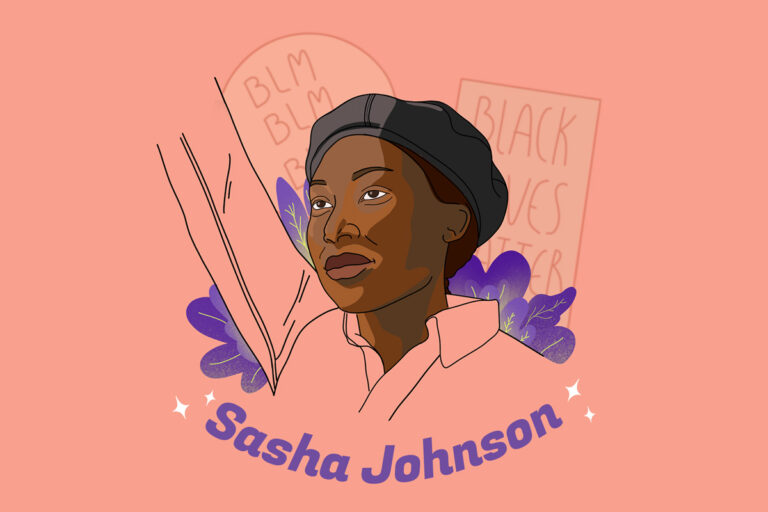Who is Sasha Johnson? The black activist who faced numerous death threats

Today marks the first year anniversary of George Floyd’s death. A moment in history that gave birth to a surge of racial inequality protests. It shouldn’t take such a sickening event to bring racial injustice to the headlines and forefront of public discourse—but sadly, it does.
Sasha Johnson, a prominent back activist in the UK, is just another example of this. On 23 May 2021, she was shot in the head in Peckham, London and, as of 25 May, remains in hospital in critical condition. There is reason to believe that this wasn’t a racially motivated attack, however, the fact that this is even brought into question highlights the horrible reality of the racial injustice that still plagues this country. Here’s everything you need to know about the fearless black political campaigner who fought for a more equal country for us all.
The fearless political campaigner who received numerous death threats
Johnson studied a degree in social care from Oxford Brookes University, graduating first-class and self-identifying as “Oxford’s Black Panther.” And she lives up to the title—the 27-year-old mother has been invaluable to her community, volunteering for food insecurity initiatives and working in community support as a youth worker. She was also a prominent figure in a number of campaigns such as the removal of the statue of Cecil Rhodes, a Victorian imperialist, from the Oxford University campus.
Reported to be “at the forefront of many BLM protests,” Black Lives Matter UK called Johnson “a fearless political campaigner.” When faced with backlash from far-right counter-protesters, Johnson told The Guardian, “We’re painted as thugs when the real thugs are disguised as protecting those memorials. And when they’re drunk, they piss on those memorials.” Johnson has been the victim of “numerous death threats as a result of her activism” according to the political party she was involved with, Taking The Initiative Party. Yet still, she stands strong, bravely speaking out against racial inequality.
We are saddened to hear that Sasha Johnson is fighting for her life after a critical wound and following numerous death threats.
— #BlackLivesMatterUK (@ukblm) May 23, 2021
While Sasha wasn't part of our organisation, she impressively founded a new Black led political party and was dedicated to resist anti-Black racism.
Johnson, along with fellow political activists, was involved in the founding stages of the Taking The Initiative Party—a party that supports the decentralised BLM movement but is unaffiliated with any Black Lives Matter organisations. Its website states the party was founded by people from “working-class backgrounds who felt, like many others across the country, that we had become politically homeless.” The political party is groundbreaking, as Johnson told supporters that the party “will be the first black-led political party in the UK.”
The activist also continued to fight for black lives on a political and grassroots level. She organised the Million People March in August 2020, an anti-racist demonstration in London. In March 2021, she co-signed a statement alleging the police deliberately targeted black protesters who participated in the 2020 BLM protests—warning specific individuals not to engage in the Kill the Bill protests to avoid being targeted.
The shooting
Johnson was shot at a party on 23 May in Peckham, London—police were notified of the incident at 3 a.m. that night. As of writing this, Johnson remains in critical care for wounds to the head. Despite the numerous death threats, it is not believed this was a racially aggravated attack. According to the BBC, a friend reported Johnson was not the intended target of the shooting. Metropolitan Police have made a statement today saying men had “entered the garden of the property and discharged a firearm.”
We all wish Johnson a speedy recovery. Our thoughts are with her friends and family at this time. The death of a prominent political activist would be a loss, not just for the BLM movement, but for the nation as a whole. In a politically turbulent decade, where racial inequality runs rife, we need brave figures like Johnson now more than ever.





